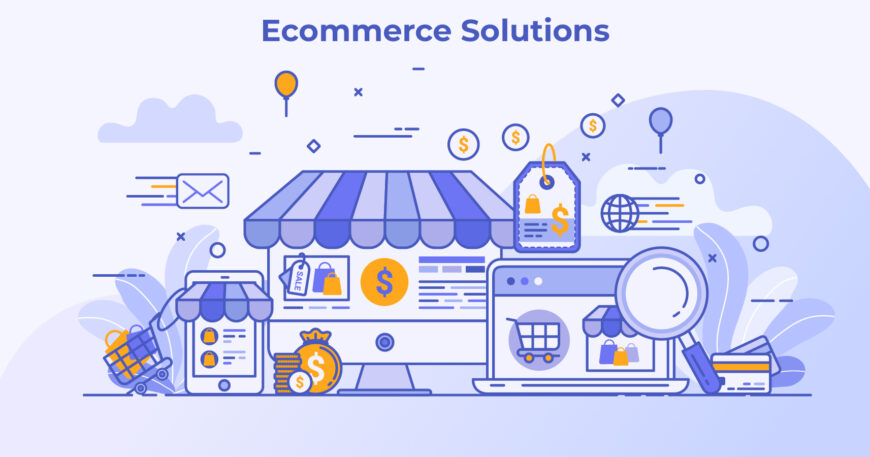Choosing the right ecommerce platform is crucial for small businesses looking to establish or expand their online presence. With the growing popularity of online shopping, it has become increasingly important to select a platform that not only meets the unique needs of your business but also provides the necessary support and tools for success.
When evaluating platforms for ecommerce solutions, two key factors to consider are popularity and marketplace support. While popularity and marketplace support are essential considerations, it’s important to note that there is no one-size-fits-all solution. Each business has unique requirements and priorities, and what works for one may not be the best choice for another.
It’s crucial to carefully assess your business needs, budget, technical capabilities, and growth goals when selecting an ecommerce platform. By doing so, you can make an informed decision that aligns with your business objectives and sets the foundation for a successful online venture.
Understanding the Popular Choices
When it comes to popular platforms for ecommerce solutions, there are these top 10 contenders that have gained recognition and trust among businesses. These platforms for ecommerce solutions offer a range of features and functionalities to cater to the diverse needs of small businesses.
1. BigCommerce
BigCommerce is a comprehensive ecommerce platform that provides a robust set of tools for building and managing online stores. It offers a user-friendly interface, extensive customization options, and integration capabilities to enhance the overall shopping experience.
2. Shopify
Shopify is one of the most widely known platforms for ecommerce solutions, offering a simple and intuitive interface for setting up and managing online stores. It provides a wide array of themes, apps, and plugins to customize your store and optimize various aspects of your business operations.
3. Wix
Wix is a popular website builder that also offers ecommerce capabilities. It provides an easy-to-use drag-and-drop interface, enabling businesses to create visually appealing online stores. Wix offers a range of templates, built-in marketing tools, and secure payment options.
4. Squarespace
Squarespace is another website builder that supports ecommerce functionality. It offers elegant and modern templates, making it an excellent choice for businesses focused on design. Squarespace also provides built-in SEO features and marketing tools to enhance online visibility.
5. WooCommerce
WooCommerce is a plugin for WordPress that transforms your WordPress website into a powerful ecommerce store. It offers flexibility, scalability, and a vast selection of extensions and themes to customize your store according to your specific requirements.
6. Kentico
Kentico is an all-in-one CMS and ecommerce platform that provides robust content management and online selling capabilities. It offers advanced marketing features, personalization options, and multilingual support for businesses targeting global markets.
7. Weebly
Weebly is a user-friendly website builder with integrated ecommerce functionality. It offers drag-and-drop customization, mobile-responsive templates, and SEO features. Weebly also provides a range of marketing tools and integration options.
8. GoDaddy
GoDaddy is a popular web hosting provider that offers an ecommerce platform to help businesses create and manage online stores. It provides a simplified setup process, mobile optimization, and various marketing tools to drive traffic and sales.
9. Magento
Magento is an open-source ecommerce platform known for its scalability and flexibility. It offers robust features for managing large catalogs, multiple stores, and complex ecommerce operations. Magento also provides extensive customization options and integration capabilities.
10. Salesforce Commerce Cloud
Salesforce Commerce Cloud is a scalable enterprise-level ecommerce platform that offers a range of features to support complex online selling operations. It provides comprehensive customer management tools, AI-driven personalization, and omnichannel capabilities.
These platforms for ecommerce solutions represent a mix of Software as a Service (SaaS) and open-source options, each with its own strengths and limitations. Understanding the unique features and focus of each platform can help small businesses make an informed decision that aligns with their specific needs and goals.
The Myth of a “Best” Platform
Rather than seeking a universally “best” ecommerce platform, small businesses should focus on identifying the platform that best suits their individual needs and objectives. By carefully considering factors such as features, scalability, customization options, and marketplace support, entrepreneurs can make an informed decision that lays a solid foundation for their online success.
Exploring SaaS vs. Open-source Options
The decision between SaaS and open-source platforms for ecommerce solutions is a trade-off between ease of use and customization. Small businesses should evaluate their technical expertise, customization requirements, and future scalability needs. By understanding the advantages and disadvantages of each type, businesses can make an informed choice that aligns with their unique circumstances and goals.
Platform Spotlight: SaaS Platforms
SaaS platforms for ecommerce solutions like Shopify and BigCommerce offer small businesses an accessible and user-friendly solution for building and managing their online stores. With intuitive interfaces, integrated payment processing, and robust marketplace support, these platforms for ecommerce solutions provide a solid foundation for ecommerce success.
However, it’s crucial to evaluate the limitations and ensure that the available customization options align with the specific needs and branding of the business. By carefully considering these factors, small businesses can choose the SaaS platform that best suits their requirements and empowers them to thrive in the online marketplace.
Platform Spotlight: SaaS Platforms with CMS Functionality
SaaS platforms for ecommerce solutions with CMS functionality, such as Wix, Squarespace, and Weebly, provide small businesses with the convenience of managing both content and ecommerce within a single platform. With their simplicity and extensive design options, these platforms for ecommerce solutions enable businesses to create visually appealing websites.
However, it’s essential to assess the limitations and ensure that the available ecommerce capabilities align with the specific needs of the business. Small businesses with straightforward ecommerce requirements can benefit from the ease of use and design flexibility offered by these platforms for ecommerce solutions. However, those with more complex or scalable needs may need to explore dedicated platforms for ecommerce solutions for a comprehensive and robust solution.
Platform Spotlight: Open-source Platforms
Open-source platforms for ecommerce solutions like WooCommerce and Magento provide small businesses with powerful and flexible ecommerce solutions. With extensive customization options and a supportive community, these platforms for ecommerce solutions enable businesses to create unique online stores tailored to their specific requirements.
Thus, businesses considering open-source platforms for ecommerce solutions should be prepared to handle hosting and maintenance aspects independently or with external support. Technical complexity may also require additional resources or expertise to fully leverage the customization capabilities.
For small businesses with the necessary technical resources and a desire for maximum control over their ecommerce operations, open-source platforms for ecommerce solutions offer a robust and adaptable solution.
Other Factors You Should Know
Beyond platform features, small businesses should consider pricing, scalability, integrations, and support when selecting an ecommerce platform. Assessing these factors in relation to the business’s long-term goals and growth potential is crucial for making an informed decision. By carefully evaluating these aspects, small businesses can choose a platform that not only meets their current needs but also provides the flexibility and support required for future success.
Conclusion
Selecting the right ecommerce platform for your small business is a critical decision that can significantly impact your online success. Throughout this blog, we have discussed key factors to consider when evaluating different platforms for ecommerce solutions. By taking all these aspects into account, you can make an informed choice that suits your unique requirements.
At Vserveecommerce, we understand that having an effective online presence is essential for the success of your business. Our team of experts is dedicated to creating an engaging and intuitive user experience that will help you attract and retain customers, increase sales, and drive business growth.
This blog is inspired from the video “The Best Ecommerce Platform in 2022” by “Ecommerce Aholic.”





